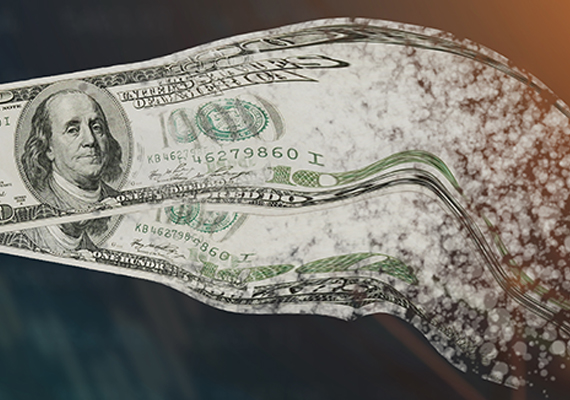
How Inflation Helps Refine Priorities
Neuroscience explains, the reward-seeking behavior people get from indulging in such activities as gambling and speculating in stocks.1 When we fall in love, neurochemicals such as dopamine and oxytocin flood our brains in areas associated with pleasure and reward, producing a number of physical and psychological responses. Among them are feelings of calmness, contentedness, and a tendency to be more trusting.2
Pursuing pleasurable emotions can lead to addictive behavior, like in gambling or speculating in the stock market. Richard Peterson, who studies how economic behavior affects the brain, explains that brain scans of people engaged in short-term investing (an immediate reward-seeking behavior) show a significant increase in levels of dopamine. Their feelings of pleasure are highest during the period when they anticipate their payoff. In fact, the larger the anticipated reward, the more dopamine floods that region of the brain. Looking forward to the reward is a much stronger stimulant than actually receiving the reward. And feelings of mild depression can follow once it's been received, even if it's just what they expected. Unfortunately for investors, research has shown that losses carry twice the negative emotional weight as gains. 3
When you speculate in stocks and lose, you immediately want to get rid of those bad feelings. So, you invest again, briefly enjoying the anticipation of your imagined gains, until it again becomes a stinging loss, and the cycle perpetuates. Financial educator Patrick Geddes explains that contributing to this behavior is the faulty belief that we can predict what the market will do. "That bias makes us easily seduced by the pitches from active stock managers," he writes, "whose track records on average fail to beat the stock market or index funds over longer time periods. In spite of the odds against beating the market, we still are prone to fall in love with the romance of unrealistically high returns." 4
Realizing that acting on emotion, positive or negative, can hinder long-term results, investors should follow a plan carefully tailored to their unique situation.
1. http://go.pardot.com/e/91522/investorbrain-php/933t1s/1898087975?h=ApQSduJ__7SSPRhnveA_TYp7jKVESYXFDAKX3m1m5fo
2. http://go.pardot.com/e/91522/anagement-is-like-a-love-long-/933t1w/1898087975?h=ApQSduJ__7SSPRhnveA_TYp7jKVESYXFDAKX3m1m5fo
3. https://hbr.org/2006/01/decisions-and-desire
4. https://patrickgeddes.co/media/

Related articles

Saving money isn’t just about cutting back—it’s about thinking differently. In 2026, rising costs and evolving financial tools mean traditional advice like “cut back on Starbucks” isn’t enough....

Estate planning in 2026 is more critical than ever as rising exemption limits, evolving tax rules, and shifting family dynamics reshape wealth transfer strategies. With the federal estate and gift...

As we step into 2026, creating a solid budget is more important than ever. Economic trends, evolving consumer behaviors, and technological advancements are reshaping how we manage money. Whether...